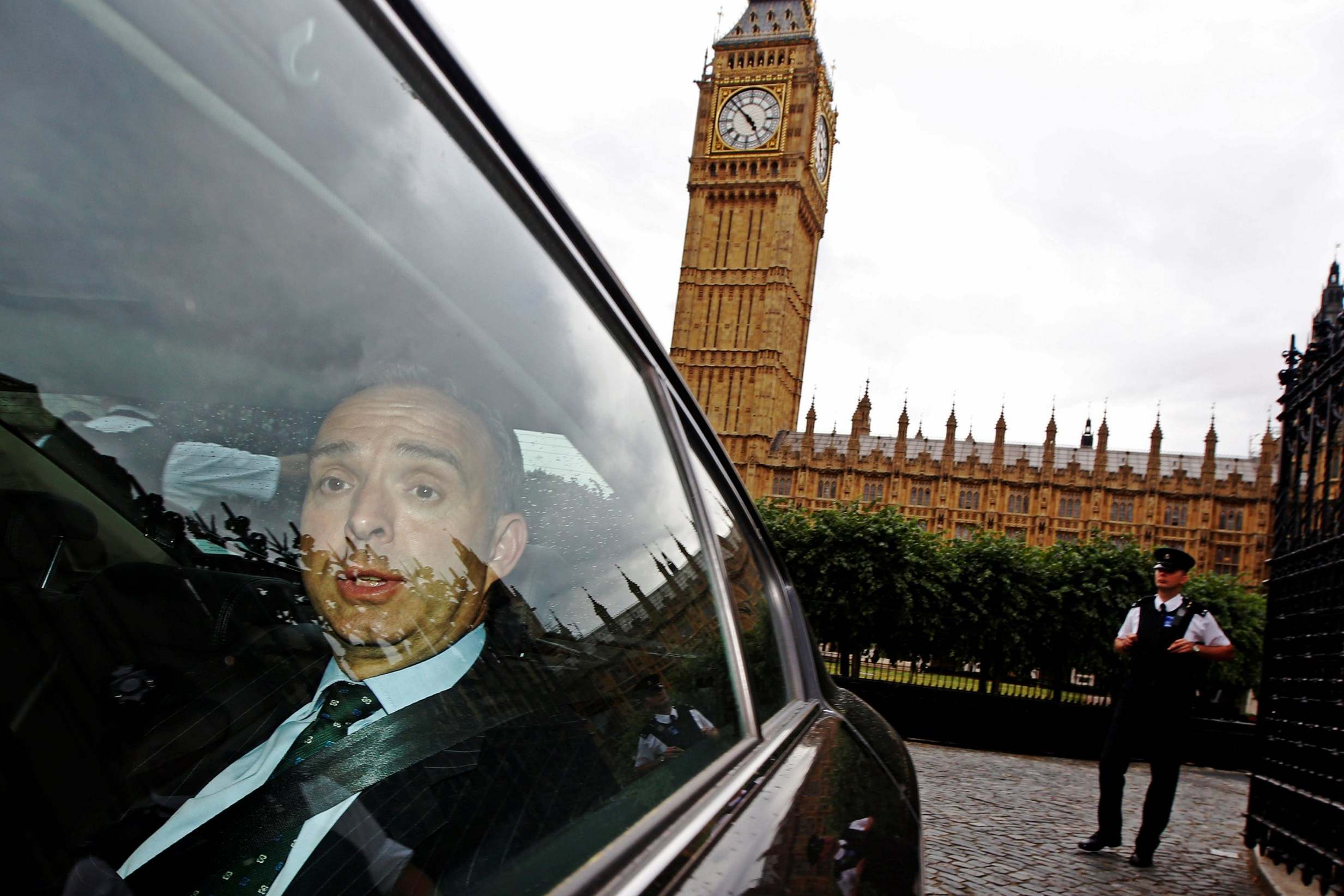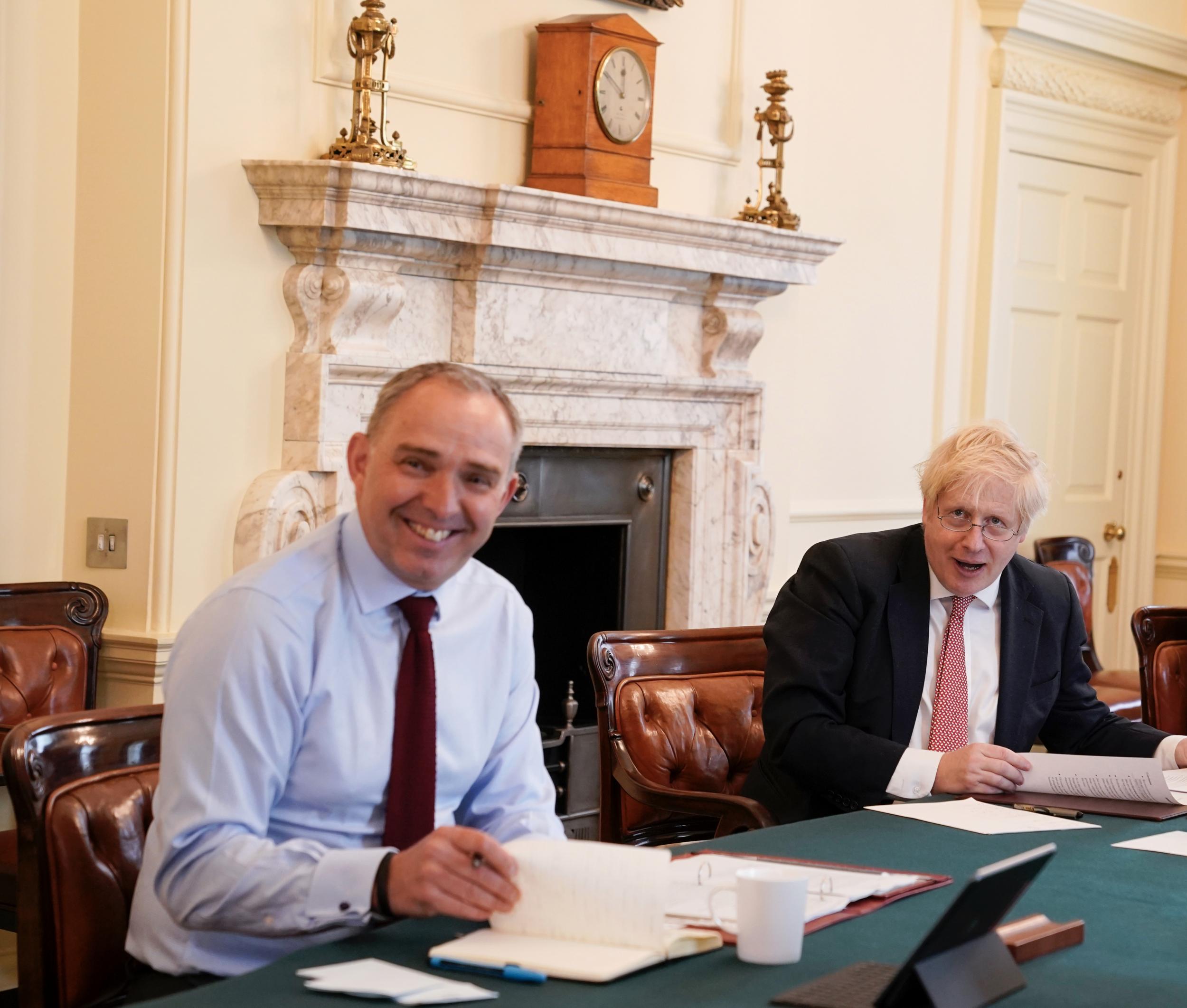‘Appalling and unnecessary’: Top military and diplomatic figures condemn Mark Sedwill’s departure
While experts agree the posts of cabinet secretary and national security adviser were too much for one person to handle, the nature of Sedwill’s exit has prompted accusations the government is undermining the impartiality of the civil service

Your support helps us to tell the story
From reproductive rights to climate change to Big Tech, The Independent is on the ground when the story is developing. Whether it's investigating the financials of Elon Musk's pro-Trump PAC or producing our latest documentary, 'The A Word', which shines a light on the American women fighting for reproductive rights, we know how important it is to parse out the facts from the messaging.
At such a critical moment in US history, we need reporters on the ground. Your donation allows us to keep sending journalists to speak to both sides of the story.
The Independent is trusted by Americans across the entire political spectrum. And unlike many other quality news outlets, we choose not to lock Americans out of our reporting and analysis with paywalls. We believe quality journalism should be available to everyone, paid for by those who can afford it.
Your support makes all the difference.Leading military, security and diplomatic figures have condemned the “appalling and unnecessary” secret briefings targeting Sir Mark Sedwill that preceded his departure from the jobs of cabinet secretary and national security adviser, and which they say were designed to ensure that the most senior jobs in Whitehall go to Brexiteers.
Despite Downing Street’s denial that Sedwill’s exit was orchestrated by Boris Johnson and Dominic Cummings, there is a strong concern about systematic politicisation of the civil service. David Frost, Johnson’s chief negotiator with the European Union and a long-term Eurosceptic, has been selected to take over from Sedwill as national security adviser. No 10 officials have been saying privately that the cabinet secretary role will also go to a Brexiteer.
Sedwill was Nato’s most senior civilian official in Afghanistan, having previously been British ambassador there. He worked alongside General David Petraeus, the US commander, during a particularly violent period even by the standards of that country. He was national security adviser at a time of lethal terrorist attacks, the Skripal poisoning, and the programme to rebalance the military.
Frost, who has served as ambassador to Denmark, policy director at the Foreign Office and special adviser to Boris Johnson when he was foreign secretary, has no background in the security field.
General Sir Richard Barrons, the former chief of Joint Forces Command who served in Afghanistan, Iraq and Northern Ireland, told The Independent: “This has been presented by people in this government as a great move towards diversity. But it is not; it is a move for ‘chumocracy’. Someone in Boris Johnson’s inner circle is being moved higher up the inner circle.”
“David Frost was a middle-ranking ambassador. He also dealt with strategy at the Foreign Office and so he will be good at taking a strategic view. But when it comes to matters of security, his knowledge is zero, and that is a matter of concern.
“There is another aspect to this. I personally thought that Mark Sedwill had taken on too much being both the national security adviser and cabinet secretary. But Frost is going to continue to be the Brexit negotiator at what is going to be a crucial time in the withdrawal negotiations. So how focused can he be at the national security part of his job in what is going to be quite an important time?
“Sedwill did some good things as NSA, in particular the March 2018 Fusion Doctrine. His experience and expertise will be missed. With Frost there may be worry that being part of the ‘chumocracy’, how much of a critical scrutiny of government practices, which is vital, can he actually exercise? The flipside of that, I suppose, is that being part of the circle, he will have access, and may be able to get important things done.”
There is consensus among most in the diplomatic and security field that a strong case can be made that the two important posts, of cabinet secretary and national security adviser, was one too many for a single person to handle.

Sir William Patey, who has served as British ambassador to Afghanistan, Iraq, Saudi Arabia and Sudan, told The Independent: “It is totally unfair if some people are trying to blame Mark Sedwill and the civil service for what went wrong with the handling of coronavirus, and if that is being used in any way for Mark’s departure. That’s entirely self-serving and wrong. [But] it was very difficult for him to do the two jobs; I think that’s generally recognised. David Frost has not got a security background in something like counter-terrorism. But it seems he has Boris Johnson’s ear, they have the same views, and he will be a trusted adviser.”
A senior former intelligence officer also spoke of his dismay at the briefings against Sedwill and Sir Simon McDonald: “It’s so appalling and so unnecessary. They talk about carrying out reform, but all that’s been quite nasty. I suppose it was all going to come to an end, but it’s all pretty depressing.
“They are saying they want a Brexiteer as cabinet secretary. But why should the government want to know what the private political views of a public servant are? It should be the best person for the job. David Frost is quite open about his Brexit views. He does not have that much knowledge of security, but he’s capable and he’ll have a good team around him. But there again, Cummings and co seem to have just appointed him; the normal process of selection was just ignored.”
The national security adviser’s job for Frost is seen as a political appointment. Sir Peter Ricketts, a former national security adviser, said: “What we are seeing is a PM surrounding himself with loyal advisers who share his political views. That completely changes the nature of the role. It is no longer a politically neutral civil servant giving dispassionate advice.”
Sedwill, it is noted, is the third senior diplomat who has left public service since Cummings and Johnson entered No 10. Sir Kim Darroch, a former national security adviser, was effectively forced to resign as ambassador to Washington after diplomatic messages from him, critical about Donald Trump, were mysteriously leaked, and Johnson failed to stand by him when he came under attack from the US president. Sir Simon McDonald, the permanent secretary at the Foreign Office is leaving in September. He too was the subject of negative briefings. None of the three sang enough from the government hymn sheet, in the view of some in Downing Street. Sedwill made a point of strongly defending Darroch when he was under pressure and after he resigned.
Ministers have spoken of the government taking the American approach to the national security adviser post. The president can bring in people from the outside and a number of distinguished figures have filled the role in the past, including Henry Kissinger, Zbigniew Brzezinski, Condoleezza Rice and Colin Powell.
Donald Trump has been through the extraordinary number of six national security advisers, including acting ones, in his four years in office. Some of them, including the recently departed John Bolton, are locked in acrimony with the president. “People leave because their views don’t tally with Trump’s, only nodding devotedly to whatever he thinks is deemed to be loyal,” said Robert Emerson, a security analyst. “That is the danger of politicising the administrative system – that’s happening in the US and that’s happening over here.”
Join our commenting forum
Join thought-provoking conversations, follow other Independent readers and see their replies
0Comments